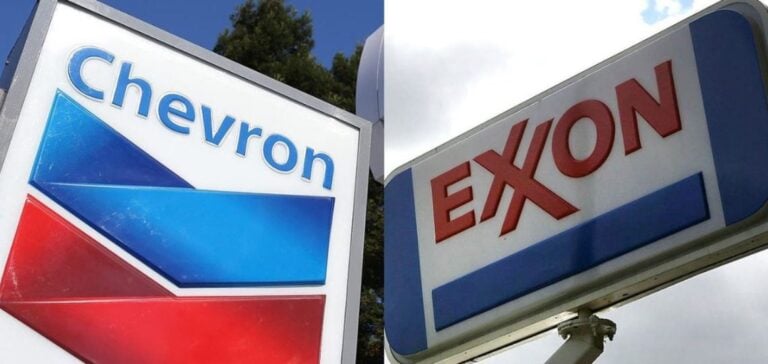The year 2024 marks a critical period for the oil and gas industry, illustrated recently by the first-quarter financial results published by giants Chevron and ExxonMobil. These results highlight the operational challenges and strategic adaptations of these conglomerates in a fluctuating economic environment.
Chevron’s performance in the face of industry challenges
Chevron recently announced a decline in first-quarter earnings, attributable to shrinking refining margins and lower natural gas prices. Despite these constraints, the Group posted sales of $48.72 billion, down slightly from $50.79 billion the previous year. Net income was $5.50 billion, down from $6.57 billion in the first quarter of 2023.
Expansion and diversification at Chevron
Despite the decline in earnings, Chevron highlighted several strengths during this period. In particular, CEO Mike Wirth hailed the 35% increase in production in the United States, a success largely due to the acquisition of PDC in 2023 for $6.3 billion, strengthening its presence in the Permian Basin. Internationally, Chevron also saw production rise by 12% overall, with notable results in Kazakhstan and planned expansions in Israel and Uruguay, in addition to its first solar-powered hydrogen production project in California.
ExxonMobil and its sectoral repercussions
For its part, ExxonMobil also faced similar challenges, with net income down 28.1% to $8.22 billion for the quarter. This decline is attributed to lower refining margins and the normalization of natural gas prices. Despite this, ExxonMobil benefited from increased production volumes in Guyana and an expansion of its Beaumont refinery in Texas, which partially offset the negative impacts.
Strategic and operational implications
The results of both companies reveal an industry in transition, seeking to navigate between external economic pressures and internal needs for efficiency and expansion. ExxonMobil, for example, plans to strengthen its presence in shale oil and gas with the forthcoming acquisition of Pioneer Natural Resources. On the other hand, the company has announced reductions in its activities in France, illustrating ongoing restructuring within the industry.
Chevron and ExxonMobil’s first-quarter 2024 performance highlights the persistent challenges in the fossil fuel sector, but also the adaptive strategies that could redefine their future in an era of energy transition. These developments are crucial for investors, regulators and stakeholders who are closely monitoring the evolution of this industry in the face of today’s economic and environmental imperatives.






















